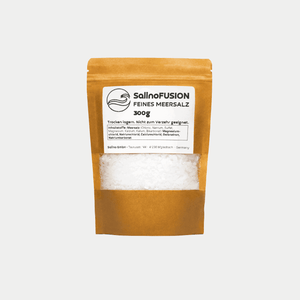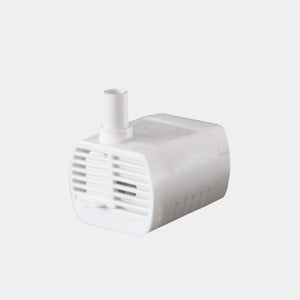When breathing becomes an art
It often begins insidiously. A fleeting scratchy throat, an occasional tightness when breathing, a cough that won't go away. And then the question: How much do we still trust our lungs? The two organs that fill us with life every day – silent, inconspicuous, yet essential.
In a world where particulate matter, pollen, air conditioning, and constant stress put a strain on our respiratory system, the need for natural ways to support the lungs is growing. It's not just since the pandemic that many people have been asking: What can I do to strengthen my lungs – in a gentle, sustainable, and natural way?
Healthy airways aren't something we can take for granted. But nature offers us amazing remedies. Some grow right on our doorstep, others can be found in ancient home remedies that have survived for generations. This article takes you on a journey to the seven most powerful natural remedies and foods for your lungs—not a list, but a narrative guide full of aha moments and profound insights.
1. Breath by breath – how the lungs protect themselves
Our lungs are a miracle. With every breath, they filter oxygen from the air and transport it into our bodies. At the same time, they have to defend themselves against pollutants, allergens, and pathogens every day. And this is precisely where the real drama begins: What they need to regenerate isn't medication—but support.
Modern science confirms that certain herbal active ingredients can have anti-inflammatory and expectorant effects. At the same time, they strengthen lung tissue or have antioxidant effects—which reduces premature aging and cell damage. The body has amazing self-healing powers, but only if we give it the right stimulus.
2. Herbs from the depths of history
 Anyone who explores natural medicine will inevitably come across centuries-old medicinal plants that are beneficial to the lungs. Three in particular have proven effective:
Anyone who explores natural medicine will inevitably come across centuries-old medicinal plants that are beneficial to the lungs. Three in particular have proven effective:
Thyme – a small herb with a big impact. Its essential oils, especially thymol, have expectorant and anti-inflammatory properties. Hildegard von Bingen recommended thyme for persistent coughs.
Ribwort plantain – traditionally used to treat dry coughs. Its mucilage soothes irritated mucous membranes and aids expectoration.
Ivy sounds unusual, but it packs a punch. Its saponins thin thick bronchial mucus and make breathing easier.
What they all have in common: Their effects are well documented, both in folk medicine and in modern studies. The WHO lists them in its monograph on the treatment of respiratory diseases. Yet many have forgotten them – in the jungle of industrial preparations.
3. Food that helps you breathe
Diet and lungs – a connection that is often underestimated. Yet our bronchial tubes depend on an anti-inflammatory, nutrient-rich diet to stay healthy in the long term.
Three foods in particular stand out:
Broccoli – its high content of sulforaphane, a secondary plant compound, has antioxidant properties and protects lung tissue from environmental damage.
Garlic – has antibacterial and antiviral properties and also stimulates blood circulation in the lung vessels.
Flaxseed – rich in omega-3 fatty acids, which have anti-inflammatory effects and stabilize lung cell membranes.
Onions, turmeric, and green leafy vegetables also play a key role. Those who regularly "eat for their lungs" will be rewarded with more stamina, better breath, and a stronger immune system.
4. Healing air – when the environment becomes medicine
 Where we live has a greater impact on our lungs than many people realize. The WHO has been warning for years about the health consequences of poor air quality – from asthma and chronic bronchitis to cardiovascular disease. One thing is clear: fresh, salty air is like a cleansing bath for the lungs from within.
Where we live has a greater impact on our lungs than many people realize. The WHO has been warning for years about the health consequences of poor air quality – from asthma and chronic bronchitis to cardiovascular disease. One thing is clear: fresh, salty air is like a cleansing bath for the lungs from within.
Anyone who has ever felt like they could "breathe freely" again after a walk on the North Sea has experienced the effect: salty air moistens the respiratory tract, thins mucus, and relieves inflammation. It's not for nothing that seaside and saltwater therapies are considered classic remedies for lung diseases.
But not everyone has access to such places. This makes it all the more important to find ways to improve air quality in everyday life :
- through regular ventilation – especially in the morning
- by avoiding aggressive cleaning agents
- through green houseplants such as peace lilies or spider plants, which filter pollutants
- through deliberate “salt air” sources, such as graduation towers or modern mini-saltworks
The lungs are a sensitive organ – they react to the smallest stimuli. They react even more strongly to favorable conditions.
5. Breathing exercises and exercise – therapy without a prescription
It's a paradox: The lungs crave movement – but many people hardly breathe properly in everyday life. Sitting, stress, shallow breaths – all of this leads to us barely utilizing our breathing capacity. Yet breathing itself has an underestimated healing power.
Respiratory therapists recommend targeted exercises that expand the chest, strengthen the respiratory muscles, and improve gas exchange. Just five minutes of conscious breathing per day has been proven to improve lung function.
One example is the so-called "pursed-lip breathing technique" – a breathing technique in which the exhalation is prolonged by pursed lips. It is particularly helpful for people with chronic bronchitis or COPD to breathe more easily. Yoga and Qi Gong also rely on controlled breathing as a path to health and inner peace.
Exercise in general—especially endurance sports like swimming, walking, or cycling—has a dual effect: It not only trains the heart and circulation, but also increases lung capacity. What matters is not the intensity, but the regularity.
6. Inflammation as a silent enemy – what antioxidants can do
Chronic inflammation is the invisible enemy of every healthy lung. It is often caused by recurring infections, particulate matter, or smoking – and sometimes persists even after the original trigger has disappeared. The result: tissue damage, the lungs lose elasticity, and oxygen uptake decreases.
This is where antioxidants come in. They capture so-called free radicals – aggressive molecules that destroy cells. Particularly effective are:
- Vitamin C (e.g. in sea buckthorn, peppers, acerola)
- Vitamin E (e.g. in nuts, vegetable oils)
- Selenium (e.g. in Brazil nuts)
- Flavonoids (e.g. in blueberries, green tea, citrus fruits)
N-acetylcysteine (NAC), a derivative of the amino acid cysteine, is also used medicinally to loosen mucus and also has antioxidant properties. The targeted intake of such substances can help relieve lung congestion—not just in the short term, but in the long term.
7. The rhythm of regeneration – sleep and lungs in harmony
 When night comes, a quiet shift begins for our lungs. While we sleep, the body shuts down many functions – but not the respiratory system. Important regeneration processes take place at night: mucous membranes are renewed, gas exchange is optimized, and minor inflammations are contained.
When night comes, a quiet shift begins for our lungs. While we sleep, the body shuts down many functions – but not the respiratory system. Important regeneration processes take place at night: mucous membranes are renewed, gas exchange is optimized, and minor inflammations are contained.
But what if sleep is disturbed—by dry air, snoring, or nighttime breathing pauses? Then the lungs lack precisely what they need for recovery. Studies show that consistent, humid, and clean air quality in the bedroom contributes significantly to regeneration. People with respiratory diseases repeatedly report that their symptoms worsen at night—and are left with a leaden fatigue in the morning.
It is therefore worthwhile to ensure a healthy sleeping environment:
- Humidity ideal at 40–60%
- no synthetic room fragrances or dust sources
- as constant a temperature as possible
- and if necessary: mild, salty room air
If you do something good for your lungs at night, you will feel it during the day: more energy, better concentration – and the liberating feeling of being able to simply breathe deeply.
Conclusion: The lungs listen – we just have to learn to listen to them
Healthy lungs need more than medication. They need care, attention, and natural stimuli that support their rhythm without overtaxing them.
We live in a time in which many bodily functions are "overlooked"—as long as they are working silently. But it is precisely this silence that makes the lungs so vulnerable. Anyone who has ever experienced what it feels like to no longer be able to breathe properly never forgets it. This makes it all the more important to start early—with what nature provides us.
Herbs that have been effective for centuries. Foods that reduce inflammation. Breathing techniques that calm body and mind. And an environment that sets you free—in the best sense of the word.
Perhaps the greatest cure for the lungs isn't a pill, but a lifestyle. One that remembers what was once taken for granted: fresh air, exercise, natural food, restful sleep.
Additional information: Salt air for the home – a silent help in everyday life
For people who want to gently and regularly support their lungs – for example, for those with a tickly cough, asthma, or dry air – a mini saline can be a helpful addition. Modern devices like the mini saline from SalinoVatis generate a particularly high salt content in the room air, thus allowing the effects of sea air to be enjoyed directly at home. Without changing the filter, silently, and without any active intervention.
It is not a substitute for medical treatment – but it can help to noticeably relieve the respiratory tract and promote nighttime regeneration.



